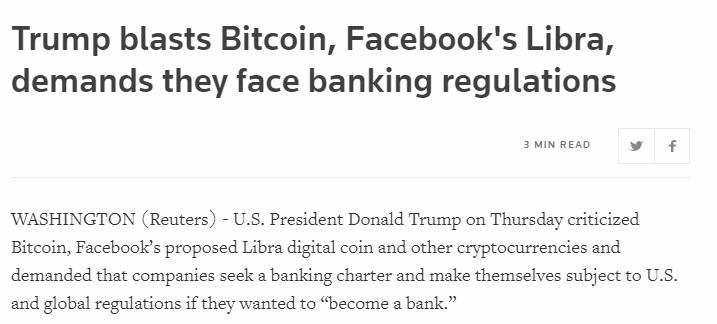As the new Finance Minister in India takes over the reigns of managing the economy, the Bitcoin industry has scaled up its efforts to some how bring in some semblance of regulatory recognition to Bitcoin and leaving no stone unturned to reach its goals.
Three events will attract attention on Bitcoin and Crypto currencies in the immediate future in India. They are
1.On July 23, the honourable Supreme Court is said to hear a petition.
2. On July 27, Alliance University, Bangalore will host the Bangalore Blockchain summit
3. On September 5th and 6th National Police Academy is set to conduct a two day “Educational” program on Crypto currency
Naavi.org would like to place its views before the public on each of these three events so that these views are not ignored in the discussions.
Supreme Court has to avoid a Trap
Supreme Court has in the past projected a face of opposition to Black money in India. It is well known that Bitcoin or Crypto currency in general is a representation of “Digital black Money” and hence any view expressed by the Supreme Court is a view against “Legitimization of Black Money”.
All the opposition to Aadhaar and the support to Bitcoin that some activists are expressing and expecting support from the Supreme Court is a result of the fight of the Government to reduce black money. The moment Aadhaar was to be used to fight “Benami” properties, it was attacked as if it was the greatest evil legislation in India. The Supreme Court went along with this view almost till the end though in the final stage yielded to the Government a leeway. Now with the new Aadhaar legislation, there is some calm that has descended on the Aadhaar front.
But the support to Bitcoin legitimization continues to be fought on all fronts and at present there is some concern that the Supreme Court may be manipulated by clever lawyers to come in support of Bitcoin.
In all our discussions, we need to remember that “Bitcoin” and “Crypto currency” has to be seen as indistinguishable since the 1000+ crypto coins are convertible with Bitcoin and hence recognition of “Private Crypto Currency” of any description will automatically provide recognition to Bitcoin. Hence all our discussion on “Bitcoin” is relevant for other Crypto currencies such as “Ethereum”, Ripple, Bitcoin Cash, EOS or others.
The discussion on “Blockchain” is often used as a cover to promote Bitcoin and hence “Legitimizing Blockchain as a technology” is often a proxy discusssion on “Legitimizing the Bitcoin” and we need to keep this in mind.
We also need to remember that “Regulating” is possible only after “Recognizing”. It is not possible to regulate Bitcoin without first recognizing its existence. Once RBI or the Finance Ministry accepts that there is a need to regulate crypto currency, they will have to start with a deemed acceptance that Crypto Currency like Bitcoin is deemed as “currency”.
What is not recognized cannot be legitimized. What is not recognized cannot be de-legitimized as well.
Hence the Supreme Court should be wary of making any comments either in its order or on the comments in the sideline that could be taken as its support to Bitcoin.
If the discussion is Crypto Currency as a “Currency”, the one line judgement is that
“Any instrument that is deemed to be a “Currency” is the exclusive preserve of the RBI in India and any person exchanging any “commodity” as “Currency” is deemed to commit an offence against the State”.
In as much as introducing a parallel currency in the country will de-stabilize the economy, it is anti-national activity. In as much as Bitcoin or other Crypto currencies are used as the currency of Cyber Criminals, as Currency of Terrorists, any dealing with Crypto Currency should be deemed as an act of terrorism and dealt with legally in that perspective.
Mrs Nirmala Sitharaman as Finance Minister and Mr Amit Shah as Home Minister and Mr Ravishankar Prasad as Law and IT Minister needs to recognize their individual responsibilities in convincing the Supreme Court that the Court in its ignorance should not legitimize this tool of terror.
Alliance University may endorse the digital Tukde Tukde Gang
The Blockchain summit 2019 in Bangalore is being hosted by a private university namely “Alliance University” and organized by KPI Consuling Services Pvt Ltd and is supported by a host of industry players. There will be discussions on “Block chain technology” as the Next Gen technology with a special emphasis on it being a platform for Crypto Currencies.
In the course of the discussions, the virtues of Bitcoin and how the Indian Government talking of 10 year imprisonment for dealing with Bitcoin etc will come for discussion.
What may start as a technology discussion may actually end up as a camouflaged attack on the Indian Government blocking the legitimization of Bitcoin. In this respect the summit has the potential of turning out to be like the JNU meetings that turned out to be a call for breaking up India.
Bitcoin and Crypto currency is an instrument of the break up of the Indian financial system and a means of terror funding and hence any promotion of Crypto Currency would be an endorsement of the Tukde Tukde gang.
It is therefore essential for the organizers to ensure that the discussions, deliberations and recommendations during the summit does not cross the boundaries of Blockchain as a technology and Crypto currency as a Currency substitute.
I wish the RBI and the intelligence agencies send their observers to the summit to keep track of what the industry is upto.
If a “University” has to be engaged in an activity such as promoting “Blockchain Technology” then there should be discussions on the adverse effect of Crypto Currencies on the environment by highlighting the power consumption by the industry. It is alarming to know that even at present Bitcoin mining industry consumes more energy than a nation like Switzerland as indicated by a recent study.
At present Bitcoin accounts for roughly 0.25 % of the world’s entire energy consumption. If there is a legitimization of Bitcoins in India and everybody starts mining some form of Crypto Currency, then this power consumption will break the backbone of India. As an academic institution, Alliance should be concerned in such aspects and ensure that the summit does not gloss over the concern.
Similarly, as an academic institution, Alliance should be also concerned of the effect on the financial structure of the country and its economy when the entire market capitalziation of Crypto Currency comes into the liquidity in the country and adds to the physical currency in circulation and how it affects the inflation and legit currency value.
I am reasonable sure that the organizers of the summit would not focus on such issues which are a real concern for the society. The Alliance University on the other hand should be concerned about these issues more than the commercial aspect that Bitcoin price is Rs 7 lakhs today and may go up further etc.
I request the Vice Chancellor of the Alliance University to keep a close watch on the deliberations and ensure that what happens in the summit is a healthy debate on technology and not a promotion of Bitcoin.
I request journalists in Bangalore to who attend the event to take note of this and cover the event appropriately ignoring the free Bitcoin coupons that would be showered on all the participants during the event.
National Police Academy needs to focus on Crypto Crimes
In the light of this background if we look at the proposed “Course on Crypto Currencies” that the NPA has planned for its senior officers, there is a need to raise a concern whether there is adequate focus on “Crimes related to Crypto Currencies” in the course.
It is accepted that without knowing what “Crypto Currency” is, Police cannot understand how to investigate Crypto Currency crimes. Hence, the course to understand Crypto Currency is essential.
We are however not aware of the details of the two day course and the emphasis that it lays down on the “Misuse of Crypto Currencies”.
At present “Cryptojacking” is a serious concern of the industry and huge losses are occurring to individuals and organizations by the malware that hides inside many computers and works as a botnet mining crypto currencies for others.
Such Bitcoins mined in India are going out of the country and therefore constitute “Virtual Smuggling”. Bitcoin ATMs are being set up as “Virtual Havala Centers”.
Bitcoins are bought and sold for extortions both in physical kidnapping as well as ransomware and are therefore the “Currency of the criminals”.
Dishonest businessmen are committing frauds using Bitcoin as a bait and setting up exchanges only to declare a “hack” later to leave the holders of the crypto currency high and dry.
The involvement of so many criminals world over in the Bitcoin industry has made it easy for some of these criminals to set up wallet agencies and exchanges and later hack into the same making the entire Crypto Currency industry completely unreliable.
The managers of Crypto currencies have not been cooperative in any investigation and the Police will find more than normal resistance in investigations that involve Bitcoins or other crypto currencies. If bitcoin is legitimized, it will become even more difficult for the Police to investigate
Anonymity is the main selling point for Crypto currencies and hence tracing the Crypto Currency transaction will never be supported by the industry. Breaking the encryption forcefully is an impossibility.
Hence if the Police allow the entry of Bitcoin in any form of legitimacy, tracing the use of crime funds becomes an impossibility. If this continues to be a requirement of criminal prosecution in cases of frauds and corruption, then the criminal justice system will fail.
I wish the NPA understands the dangerous consequences of Crypto Currencies and not allow itself to be sweet talked by the industry that Block chain is a great technology.
I wish the concerns expressed above are taken note of by the Government of India if it is serious about eliminating Black money in India.
Naavi
Reference Articles:
India addresses cryptocurrency scam wave with new police training course
India to Educate High-Ranking Police Officers on Cryptocurrency
Bangalore Blockchain summit 2019
There are several earlier articles on this site which may be also researched by interested persons.







